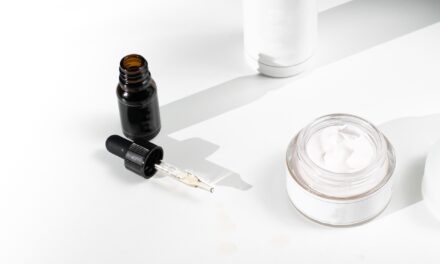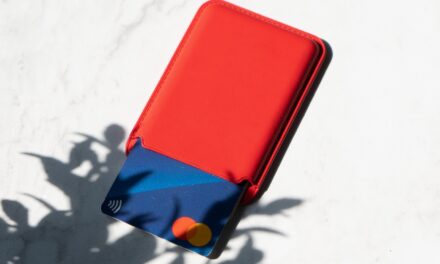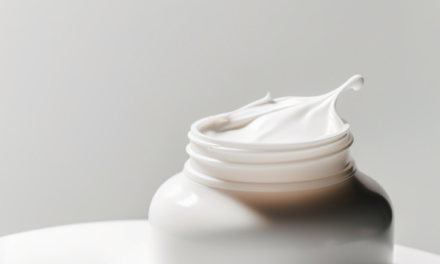Is Skincare a Scam?
“Is skincare a scam?”, you might wonder after spending $$$ on products that don’t work. Or better put, “does the beauty industry turn skincare into a scam?”. In many ways, yes – unfortunately. As consumers, we crave innovation, seeking skincare products that offer real results. But, are we getting what we expect, or are we just falling for clever marketing tricks? In this post, we’ll explore how the skincare industry, part of the fast-moving consumer goods (FMCG) sector, often prioritizes packaging and marketing over genuine skin benefits. With most products offering little more than a fresh scent or a smooth texture, it’s time to rethink our expectations and learn how to find skincare products that truly work.

Skincare and mayonnaise: a surprising parallel in innovation
From a business perspective, the skincare industry is part of the so-called fast-moving consumer goods (FMCG) sector, together with mayonnaise, dishwashing tablets, and chocolate bars. How much innovation do you think is happening for mayonnaise? Lighter texture, new packaging—that’s pretty much it. Unfortunately, it is the same for your moisturizer—at least in 80% of cases.

Inconvenient truth about innovation in skincare
When you, as a consumer, think about innovation in skincare, you probably have in mind new actives and more effective formulations that actually do something for your skin. As consumers, we expect something more similar to pharma: new molecules, new approaches that treat issues like photodamage, pigmentation, or breakouts. That is not how FMCG industries think about innovation. For them, innovation is giving old products a new feel: adding new flavors, a silky texture, cute packaging, and an exciting marketing spin. This type of innovation is cheaper and faster; no clinical trials are needed. Just tweak the formulation, run a focus group with a few consumers to track their reactions to the product’s marketing story and how it feels during application, and you’re done.
The skincare industry is run by marketing; over 70% of skincare companies’ budgets are spent on marketing, and only 4% is allocated to innovation (including packaging!). These numbers are even more concerning for most small skincare brands that don’t own any research facilities. In comparison, pharmaceutical companies spend 15-40% of their budgets on R&D, with most of this funding going towards the efficacy of treatments and clinical trials.
This is why, when you hear about an innovative product in skincare, it is more likely to be a marketing scam than a true innovation. Of course, there are exceptions, but they are rare. Over the last three to four decades, only a few truly new breakthrough actives have appeared in skincare; most of them are sunscreen filters and peptides. The most potent class of skincare actives still remains retinoids—which were discovered in the pharmaceutical field over fifty years ago.
With this knowledge, as consumers, we should not be surprised that most cosmetic skincare products simply do not work, especially for concerns other than skin moisturization.
The industry reaps what it sows: no investment in efficacy research = no true skin results. What is left is differentiating on marketing: celebrities, beautiful packaging, and exciting brand stories.
How to avoid getting “scammed”?
But we want skin results; we want products that work and truly help our skin health and appearance. What should we do? Here is a five-point plan to help you avoid being scammed.
-
Be critical of the skincare brands marketing. Take anything with a grain of salt. If anything sounds “too good to be true”, it’s probably not true.
-
Start your skincare research with actives, not products. Learn what ingredients have a good evidence record for working toward your skin goals. It takes time, but your skin is worth it. To get you started, check out the actives WIMJ researched for the main skin concerns: anti-aging, acne and clogged pores, and pigmentation.
-
Evaluate products based on their ingredient lists and the concentrations of active ingredients they use. Skip the packaging’s front and go directly to the ingredients’ fine print on the back.
-
Be wary of the product advice you get in beauty stores and estheticians’ salons. Usually, they have an interest in selling you certain, more expensive products because they receive a higher commission on them. If you see a one-brand cosmetic line on display in a salon, that is the first sign that you are dealing with a sales representative of this brand.
-
Less is more when it comes to skincare and consistency is key. Typically, you only need 1-3 effective active ingredients in your routine to achieve your skin goals. The rest of the products you use should be as gentle and straightforward as possible – for example, a mild cleanser, a reliable sunscreen, and a basic, fragrance-free moisturizer. Avoid complicated skincare rituals and lengthy multi-step routines. These are more focused on entertainment than dermatology. If you want results from your actives, you must stick with the same routine for 3-6 months or longer. Do less, but be patient and follow through with your skincare plan.
Choose your products based on actives
WIMJ Search allows you to select skincare products based on what’s inside. Filter products by actives included, and exclude ingredients you don’t want. Check the concentration of ingredients and potential irritants.
Sources
- Research and development (R&D) expenditure of L’Oréal worldwide from 2009 to 2022 https://www.statista.com/statistics/517825/global-randd-spending-of-l-oreal/
- ANNUAL REPORT 2021 FINANCIAL PERFORMANCE https://www.loreal-finance.com/en/annual-report-2021/financial-performance/
- THE ESTÉE LAUDER COMPANIES INC.
INDEX TO ANNUAL REPORT https://media.elcompanies.com/files/e/estee-lauder-companies/universal/investors/investor-resources/toolkit/form-10k-2021.pdf - Historical Selected Financial Data
Shiseido Company https://corp.shiseido.com/report/en/2021/pdf/financial-statements-en.pdf - Beiersdorf AG’s spending on research and development from 2001 to 2022 https://www.statista.com/statistics/273039/beiersdorf-ag-spending-on-research-and-development-worldwide/
- Pfizer’s expenditure on research and development from 2006 to 2022 https://www.statista.com/statistics/267810/expenditure-on-research-and-development-at-pfizer-since-2006/#:~:text=During%202021%2C%20Pfizer%20expended%20some,with%20some%209.5%20billion%20dollars
Here is a video from a dermatologist Dr. Usama Syed expressing some of the same frustrations about the state of the skincare industry. Thank you our community member Jackie Tee for finding it and starting this discussion in our community.
Related Articles
Winter Skin Care: Navigating the Chilly Season with Healthy Skin
Let’s dive into understanding winter skin and how to best care for it.
When Buying Skincare, What Are You Really Paying For?
Ever wondered what’s behind the price tag of your skincare product? Are you just forking out for fancy ingredients and chic packaging? The reality may surprise you. Let’s break it down and see where your money really goes.
The Dark Side of Lightweight Sunscreens
Do lightweight sunscreens provide enough sun protection? Lightweight sunscreen formulas have a higher risk of not providing the sun protection they promise. Learn more in this article.
Opting for Fragrance-Free Skincare: A Skin-Friendly Choice
Opting for Fragrance-Free Skincare: A Skin-Friendly ChoiceIs the smell of your skincare products hurting your skin? It's a question we often don't think about. Yes, the scents can be nice, but they can also cause problems. About one in three skin issues from cosmetics...
What Does Sensitive Skin Mean and How to Help It?
Discover what sensitive skin truly means. We break down the causes, symptoms, and potential triggers of sensitive skin, and share simple steps to manage and reduce skin sensitivity effectively.
The Aging Face: the Brutal Truth About Skincare Limitations
Explore the deeper aspects of aging, beyond skin-deep. Learn how bones, muscles, and fat influence facial changes and understand the limitations of skincare in fighting time. Embrace the natural evolution of your beauty with a fresh perspective.
Can Topical Skincare Improve Skin Elasticity?
Discover the truth about skin elasticity and the effectiveness of topical skincare treatments. Learn about the key components that give our skin its elasticity, why skincare can help to an extent, and the best strategies to protect your skin’s natural firmness
Do You Really Need Custom-Made Skincare?
Custom-made skincare products have become a talking point recently. But are they an essential innovation in skincare or simply a captivating marketing gimmick? This blog post delves into whether personalized skincare truly offers advanced scientific solutions tailored to our unique needs or is it luring us into paying more for seemingly “perfect” products.
Do I Need Sunscreen for Indirect Sunlight?
How often have you heard that sunscreen is key for protecting our skin from the sun? A lot, right? But, does this same rule apply when you’re in indirect sunlight, in the shade or on a cloudy winter day? The answer is yes. Here’s the explanation.
The Ultimate Guide to Sunscreens And Sun Protection
“Understanding why sunscreen is important in skincare is essential for maintaining youthful, healthy skin. Scientists have found that a staggering 80% of externally-caused skin aging is a result of sun damage. The effects? A variety of skincare woes such as pigmentation problems, scarring, and enlarged pores as we age. So, whether you’re dealing with anti-aging, acne, or pigmentation concerns, sunscreen is an irreplaceable part of your skincare routine. And remember, it’s vital for all skin tones – yes, even the darkest ones.”




